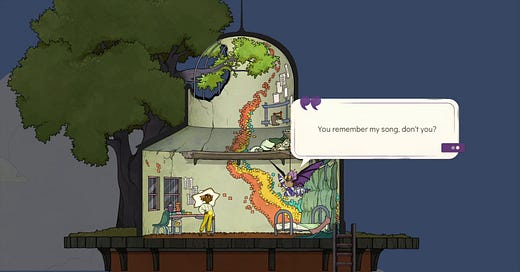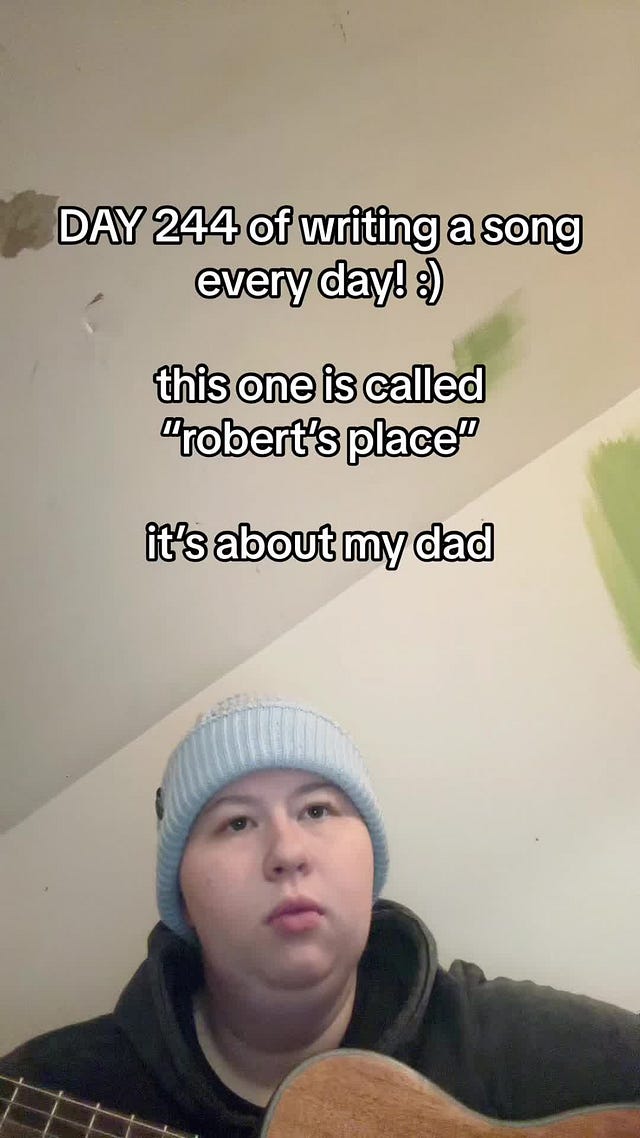Artists & Composers: Goals and the weight of the public eye.
What can the music industry learn from their similarities and differences?
This is actually a thread I started writing in the last post but it was getting out of hand, so I bottled it up and turned it into a post. Aren’t I creative? I am exploring a bunch of article links to discuss what is expected of music makers. Also, I’ll be exploring my own take on how artist’s and composer’s expressions and career journey has both similarities and differences.
Artists vs Composers
Artists vs Content
Industry learnings
1. Artists Vs Composers
The music industry has done a great job of building clout, but there isn’t so much of a difference between an influencer and an artist when it comes to social media. Having a strong social media presence (aka free direct marketing for those with enough followers) is rewarding enough to convince any artist that building a brand/personality is as important as writing music.
Separately, gaming soundtracks are purposefully made to instigate a feeling and enhance the experience. Soundtracks that successfully achieve the goal of capturing the directed feeling have become their own ‘playlist’. The honesty and transparency of gaming music’s purpose could explain why so many gaming soundtracks that achieve this (like my last week’s post ‘Spiritfarer’) have so many monthly listeners.
As much as we could compare artists to composers, we shouldn’t. Yes, they both aim to make music, but the biggest distance between the two is that artist’s have a social obligation to remain public at all times - known in modern strategy as the always-on artist.
A modern artist is expected to write incredible music and also be absolutely everything else. You have to make music, perform it - every night - and sell your own merch (probably make your own merch) and then develop a new brand for the next album or EP. Additionally, artists need to understand rights, make money in any way possible, employ the right people, be high energy all the time, network like hell and be lucky, make good decisions, make tiktoks and post all the bloody time and be consistent with your brand (unless you’re changing your accent like Liam Payne).
(Please don’t attack me if I’ve got this wrong, I have an apology below already) Composers have a fair few cross overs here, but artists require momentum and spinning all of these plates at the same time. I believe composers can focus on the music creation exclusively during its creation, and with that, means they can compose according to a brief. By no means am I suggesting composers have it easy - it’s a very different world. They are still integrated with a littany of other jobs such as Chris Remo in Firewatch being very much integral to the gameplay and entire game development which artists don’t even need to think about.
Here’s the main difference, quoted by Daniel Ek, in this article:
“It’s quite interesting that while the overall pie is growing, and more and more people can partake in that pie, we tend to focus on a very limited set of artists,” Ek said in the interview. “Even today on our marketplace, there’s literally millions and millions of artists. What tends to be reported are the people that are unhappy.”
“You can’t record music once every three to four years and think that’s going to be enough. The artists today that are making it realise that it’s about creating a continuous engagement with their fans. It is about putting the work in, about the storytelling around the album, and about keeping a continuous dialogue with your fans.”
Some may say that the thrill of performing all the time is worth it and would find it more stressful having to deliver to a brief. Some would say having a lot of time to create something masterful and not having to worry about other elements is less stressful. Exam versus essay. Choose your stress. Just like Spiritfarer taught us, we can enjoy the journey but there’s still going to be something sad or stressful ahead of us. Luckily, I’m sure there’s a playlist for that.
Given my experience in labels from indie to majors, both from the label and the artists side, I have a bias that I can’t help but identify. Where composers can lean on a game to ensure their work is distributed and listened to, artists have to contest with 100,000 other tracks a day. As there are far fewer games than there are other artists to compete with, it seems that composer’s battle is contesting for the brief at the start, while artists is contesting for listeners at the end.
How can an artist stand out amongst the ever-growing crowd? Here is some advice by Music Business Worldwide which, funnily enough, basically details how to turn your music into a brand, which is exactly my point. So there.
2. Artists vs Content
Artists have a unique battle with content, that composers are not set (in my opinion/bias) with the same always-on expectation. A good way to determine the differences here is asking the question ‘Why am I listening to your music?’ - It could be that it was part of a game that drew you in, but as an artist, is it relevancy? a recommendation? discovery? engaging content?
On the other hand, composers are at the mercy of the game. If it has a bad reception, would that overshadow an otherwise incredible soundtrack?
When anyone decides to make content, I’d like to think that the most successful content follows what the audience wants rather than panders to the algorithm. Modern social media platforms like TikTok show us that interactions from viewers can determine success (not always! but a good benchmark).
These articles may suggest this because the purpose behind writing, and the audience that it would speak to, is the tether that is often forgotten. We have social media platforms arguably deciding the fate of artists by controlling exposure. But when the content of the music stands out because of a direct and deeper purpose, it creates a moment. I’m sure you’re fed up of all my links so far so here’s an actual example:
Here is a TikTok of a chap called Simon Robert French. He’s a young, emerging artist who tasked himself with making a song every day for over 200 days and posting it online. Below is the simple song about visiting his late father with a song called ‘Robert’s Place’. The depth of this song and the impressive calibre of writing resonated with enough people to drive his videos from thousands of plays to millions.
He later put this and two other songs on Spotify. Roberts place stands out with 905k plays as of the time of writing this and counting.
Really it took one example to prove that Simon can capture an emotion, even if he runs the risk of being bottlenecked by writing that one song. In reality, he is a great standalone artist and would be a fantastic songwriter for many other people to help them tell their stories too. Either way, he has two choices: he either carries on doing his own thing (a performing artist), or he doubles down on what the audience has responded to him for (composing).
Artists and composers both tell stories. A composers job is to write stories that start and end within the soundtrack, while an artist is supposed to go on an indefinite journey that should never ideally come to an end. That is because a game has a start and an end, but when does an artist’s brief end? A composer will find another project to open and close, but an artist’s music eminates only from themselves, which is why, unlike Spiritfarer, they can never be laid to rest.
Artist’s today must aim to remain permanent, or at least mark out a story they wish to create and identify an end point they are happy with. Their audience will find them and celebrate that journey because the message and values are clear this way. Listeners will revisit that album, just like a game’s soundtrack, in order to live back in the feeling that the music is aiming to create.
3. Industry Learnings
What can artists learn from composers?
To Artists,
If you are overwhelmed by the perpetual requirement to grow and be both first and the best with everything that you do, it’s okay - you’re not alone. Composers are often given a brief to follow, and why can’t you do the same? Every album, or year, or even track, can be a new movement for you as an artist. As more contenders come into the market, it makes it more important for you to be you and to set smaller achievable goals and keep going, such as focusing on the next track only. A goal for an artist can feel like the ‘end’ of growth, but there is always a sequel if you choose. I believe it is fine for artists to work in seasons, and the composer’s framework is helpful for mental capacity. Keep going!
What can composers learn from artists?
To Composers,
You have something that is arguably often harder to capture in our generation of music makers - a directive to deliver a feeling along with a message as a top priority. Artists aim to do this, but they also have a million other plates to spin. I have no doubt that today’s artists, budding composers and even completely different industries, would take a renewed inspiration from your working and the dedication to a specific craft. (I may be wrong but) you don’t need to have such a presence in the social media space, but I do think that more people would like to hear more about what it’s like. Also to learn more about what happens between the briefs would be great. Excuse me for not knowing as much about the ‘composer’ side, and I’d love to hear from you if I’ve completely missed the mark so I can issue (another) public apology. LY x
TLDR:
Artists and composers have different variables to contest with. Composers can lean on dedicated music creation, but often have many other game-orientated jobs outside of the public eye. However, artists are expected to be ‘always-on’ - chronically online, relevant and brand-building in tandem. Composers can write to a brief to help them compartmentalise (I can never say that word out loud) their work, but artists, because of the constant public exposure, are torn between their vision and audience feedback. I’m expecting some strongly written feedback from artists & composers correcting me, and in a way, I’m looking forward to learning more (and bracing for impact).






